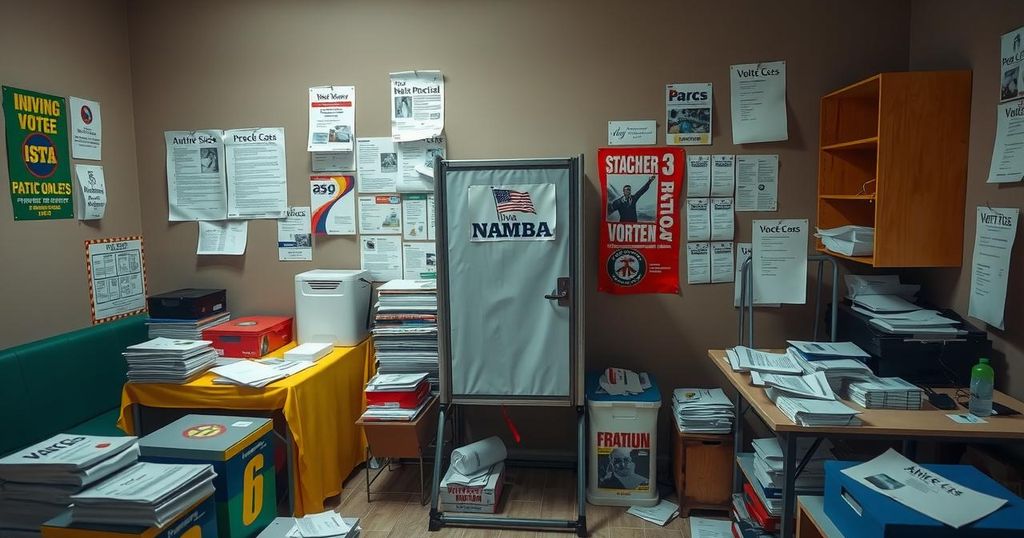Namibia Extends Voting Amid Allegations of Fraud and Logistical Challenges

Voting in Namibia for president and parliament has been extended due to ballot paper shortages, garnering complaints from the opposition about legality and fraud. Long delays at polling stations and a backdrop of socioeconomic frustrations among the youth are prominent. The ruling SWAPO party, which has governed since independence in 1990, faces increasing scrutiny during these elections.
Namibia’s electoral agency has decided to extend the voting period for the presidential and parliamentary elections into the weekend due to a severe shortage of ballot papers. The extension has faced criticism from the main opposition party, the Independent Patriots for Change, which argues that this decision constitutes an illegal act aimed at manipulating the electoral process. This situation has resulted in significant delays at polling stations, particularly in rural areas.
Ongoing frustration among voters has been evident, particularly as many have been unable to cast their ballots since the scheduled closing date. Long lines have formed at polling places, with some locations reportedly waiting for the delivery of ballot papers. Namibia’s vice-president and SWAPO presidential candidate, Netumbo Nandi-Ndaitwah, is currently contesting against a backdrop of socioeconomic discontent, particularly among the younger population.
Despite holding a reputation for stable elections in the past, recent events have raised questions about the integrity of this election. Approximately 1.4 million individuals are registered to vote, marking a critical moment for the country as it strives to address widespread unemployment and economic challenges.
Namibia, which gained independence from South Africa in 1990, has a history of stable democratic elections, typically regarded as credible by international observers. The ruling party, SWAPO, has maintained power since independence but now faces growing discontent due to pervasive socioeconomic issues, especially among youth. With elections being conducted amid logistical challenges, the recent decision to extend voting has sparked allegations of fraud and raised concerns over the electoral integrity at a time when public dissatisfaction is high. The backdrop of recent violence in neighboring Mozambique also adds to the tension surrounding this electoral period.
The extension of the voting period in Namibia raises critical questions regarding the electoral process’s integrity amid claims of logistical failures and allegations of fraud from opposition parties. As the country navigates this turbulent electoral period, there is increasing pressure from the electorate for greater accountability and responsiveness from political leaders to address longstanding socioeconomic issues. The outcome of this election will significantly influence Namibia’s political landscape, particularly as it copes with a youthful population’s rising demands for change.
Original Source: apnews.com








